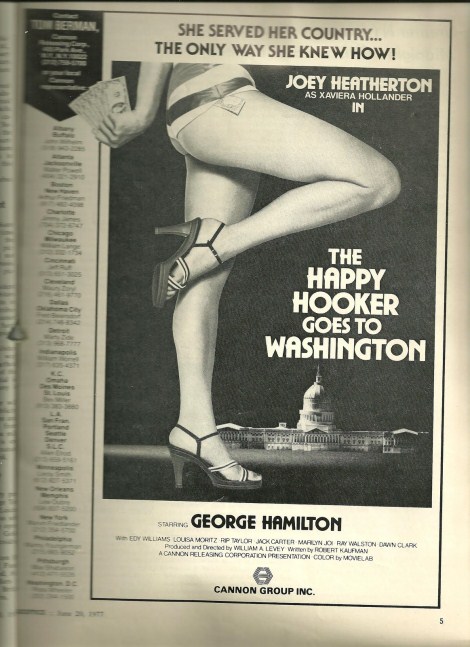Welcome to Retro Television Reviews, a feature where we review some of our favorite and least favorite shows of the past! On Tuesdays, I will be reviewing the original Fantasy Island, which ran on ABC from 1977 to 1986. The entire show is currently streaming on Tubi!
Smiles, everyone, smiles! This week, we visit the other side of the Island.
Episode 2.23 “Cornelius and Alphonse/The Choice”
(Dir by Earl Bellamy, originally aired on May 6th, 1979)
This was a bit of an odd episode.
First off, the official title of the show, for this episode, was Fantasy Island Sunday Special. Usually, Fantasy Island aired on Saturdays. This episode, as you can guess by the title, aired on a Sunday. Secondly, this episode does away with both the plane and Tattoo’s signature cry of “Da Plane Da Plane,” and instead has the guests arrive on the island in a hot air balloon. Tattoo (who is once again seen driving his little car, so I guess he finally recovered it after it was stolen earlier in the season) and Mr. Roarke are joined by a second assistant, Cindy (Kimberly Beck, who readers of this site will probably recognize as the likable lead in films like Massacre at Central High and Friday The 13th: The Final Chapter). At one point, Roarke says that “Cindy helps me on this side of the Island.” If nothing else, this episode confirms that Roarke has multiple assistants and the Island is really, really big.
Actually, it’s a good thing that Cindy is there because Cornelius (Red Buttons) and Alphonse (Billy Barty) have kidnapped Tattoo! Cornelius is a former employee of the Island but he was fired for stealing. When he returns to the Island, he says that his fantasy is to just have a pleasant holiday with his friend Alphonse. However, Cornelius’s real fantasy is to get revenge on Mr. Roarke by abducting Tattoo and holding him for ransom!
Of course, anyone who has been paying attention to the show up to this point knows that Cornelius and Alphonse have made a mistake. Mr. Roarke and Tattoo obviously loathe each other. When Mr. Roarke finds out that Tattoo is being held captive in a conveniently deserted castle, he doesn’t really seem that concerned about it. And Tattoo turns out to be such a disruptive presence that Cornelius is soon begging Roarke to take him back. In the end, Roarke demands money to take Tattoo off of their hands and Cornelius and Alphone end up paying off their debt by working in Fantasy Island’s kitchen. Tattoo is amused by the whole thing, despite the fact that Mr, Roarke was essentially willing to let him die.
Meanwhile, two orphans (Kyle Richards and Michael Anderson, Jr.) are given a chance to pick their new parents. They spend time with two sets of prospective parents. (One of the potential fathers is a magician played by a youngish Regis Philbin.) From the start of the fantasy, it’s pretty obvious that they’re going to ask to be adopted by Ruth (Juliet Mills), the head of the adoption agency. And that’s exactly what happens. The episode ends with Ruth and the children boarding a hot air balloon and flying all the way back to America.
As I said, this was a bit of a weird episode, with a new assistant and a hot air balloon. “The other side of the Island” looks a like a theme park. This episode was obviously designed to appeal to children and, for what it’s worth, the IMDb trivia section states that this episode was meant to be a “backdoor pilot” for a version of Fantasy Island that would appeal to children. (I assume Cindy would have been the main character.) Unfortunately, the kidnapping humor is a bit too broad and the adoption storyline is a bit too predictable. Hopefully, next week’s episode will take place on the adult side of the Island.




